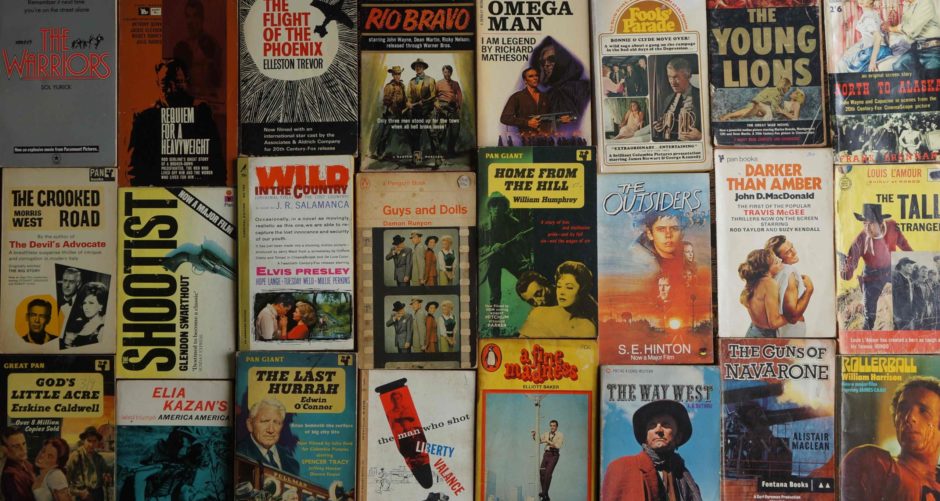FILM DIRECTOR: Peter Collinson
SCREENWRITER: Scot Finch, Antonio Recoder
FILM STARS: Richard Crenna, Stephen Boyd, Rosanna Schiaffino, Farley Granger, Patty Shepard, Ángel del Pozo
COUNTRY: Great Britain / Spain
THIS BOOK
AUTHOR: Louis L’Amour
TYPE: Novel
PUBLISHER: Corgi
THIS EDITION PUBLISHED: 1973
COUNTRY: Great Britain
COVER: Paperback
THE ORIGINAL BOOK
ORIGINAL AUTHOR: As Above
YEAR FIRST PUBLISHED: 1969
ORIGINAL BOOK TITLE: The film title
NOTES
GENRE: Western
WORDS: British westerns have rarely worked. Italian ones have. German ones have. Spanish ones have. Even Yugoslavian ones have. This British production (with some Spanish input … a beef wellington paella western?) filmed in Spain is odd but has some memorable scenes. A partial American cast, a Louis L’Amour novel basis (the film is very liberal with the book), and an intriguing premise (a man has amnesia, searches for his identity and the killers of his family) is a good start.
But, ultimately, it comes off as a sullen curio which may or may not be helped with alcohol and / or drugs. There’s abundant violence amongst the 70s cutting occasional camera tricks. Peter Collinson directed. An English director who directed (sometimes entertaining) clunky international action co-productions which are, normally, in your face all action with pauses for existential angst (well, he worked mainly in the 1970s).
The film, if you approach it right, is entertaining though don’t expect much L’Amour and do expect 70s continental excess. The cinematography is good though there is a lot of darkness, even during the day, and the score is Euro great by Luis Bacalov (who worked on Django (1966)).
Englishmen, producer Euan Lloyd and primary screenwriter, Scot Finch, wrote two other European films based on L’Amour novels – Catlow (1971) (in which Richard Crenna co-starred) and Shalako (1968)(in which Stephen Boyd co-starred).
L’Amour’s book, is like most of his work a straight read. The hero is a hero, not an anti hero, not a dubious hero, not a flawed hero. Here, also, like in some of his earlier writing (where he wrote some pulp crime), he throws in an element of mystery (the amnesia angle). Of course the beauty in L’Amour is not the plot but the detail of time and place and the escapist joy in adventure.
LINKS
TRAILER



yep re Kirk … no one pushes Kirk around. His Bryna Production Company was involved with (partially funded) POG ..and…